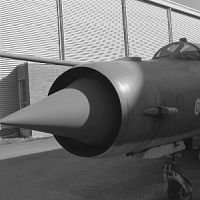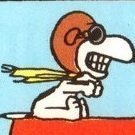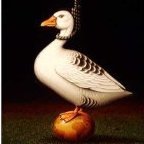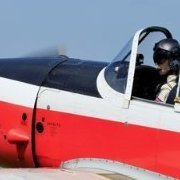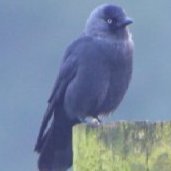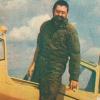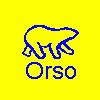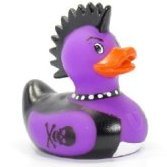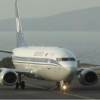Search the Community
Showing results for tags 'vampire'.
-
Pilots Replicas is working on a family of 1/48th de Havilland DH.115 Vampire Trainer (two seats) kits. Source: https://www.facebook.com/390440134419981/photos/a.390448977752430/2158553184275325/ V.P.
- 275 replies
-
- 17
-

-

-
- Pilot Replicas
- Vampire
-
(and 1 more)
Tagged with:
-
Luftosvaret De Havilland DH100 Vampire FB Mk.52, Skvadron 337 Vaernes Air Station, 1953. Tiny little Vampire was nice little kit that I just planned to do 'in-between' - but proved to be more fun than I expected. I might re-visit 1:144 scale again in the future! Painted with Vallejo acrylics and weathered with Ammo products. And no, I still haven't managed to build a Vampire that is not a tail-sitter! So this one received a clear peg under its belly to keep it up
- 5 replies
-
- 22
-

-

-
- 1:144
- mark1models
-
(and 1 more)
Tagged with:
-
Hello everyone, Here’s my latest completion, the 1/72 Airfix T.11 Vampire, built as a T.35A Vampire of 2 Operational Conversion Unit, Royal Australian Air Force, c.1967. I don’t usually build jets (the last jet I built was over 10 years ago), so this is something a little different for me. The kit is another little gem from Airfix. The only fit problem I had with at the lower wing panel roots, and at the roots for the horizontal stabliser pieces, but these weren’t too much of an issue. I did replace the kit cockpit with the Pavla resin set, which I really think helps to set off the busy and cramped look of the cockpit. I also lost the nose gear side door at some point, so had to scratch build another. The glazing also needed a bit of a polish, but it fit like a dream. I had to mask and spray both the outside and the inside given that massive canopy was going to be displayed open. The model was finished with Alclad RAF high speed silver over gloss black, with the day glow being a mix of SMS Fluro Orange and SMS Fluro Red. Decals came from Xtra Decals. These decals went down nicely, but I did still have some issues with adhesion and cracking / tearing, even after clear coating (some of which required some fairly clumsy repairs – don’t look too hard….). I am still yet to master this brand, I must admit. I made a small base for this one, representing a small piece of tarmac (a pre-printed piece of cardboard), a unit patch, and a small label. The ladders and chocks were scratch built. All in all, this one took about 6 weeks from start to finish. This is a great little kit from Airfix which goes together well and looks great. Just make sure you add enough nose weight into the front end 😊 Thanks for looking – all comments and feedback welcomed! Cheers, BC
- 26 replies
-
- 71
-

-

-
Hello everyone - here’s my latest project; the nice little Airfix T.11 Vampire trainer. I’ll start by saying, I don’t generally build jets. In fact, the last jet I built was well over 10 years ago (or more now)… So this will be a little bit of a diversion from my usual propellered fare. I intend on building this as a RAAF T.35A (which was pretty much is a T.11, at least externally, from what I understand). The RAAF flew the Vampire trainer for quite a few years, so there’s a few schemes to choose from (all of them pretty much silver overall, however quite a few wore various patterns of high-visibility / day-glow orange). I am thinking about a 2 Operational Conversion Unit (2OCU) machine from the late 1960s, with some splashes of day-glow orange. Needless to say, due to a fairly limited knowledge of the aircraft itself, I’ve decided to keep this one fairly simple. By all reports, the Airfix kit is lovely, with few vices. That being said, I did want to up the detail levels in the cockpit (the kit seats in particular are prominent, and, well, a bit plain). Somewhere along the line I had picked up the Pavla cockpit set for this one, so I decided to go with that. Detail on the set is nice, but a bit soft in quite a few places. Not knowing much about the Vampire, I pretty much left the cockpit set as is. The cockpit fits well enough, which is a bonus. Vampire cockpits are essentially all black, which on one hand is great (because it hides most things, such as my poor painting skills), but on the other hand it means that the detail can get lost in the dark gloom. So I painted mine dark grey, with quite a bit of high contrast dry brushing to pop out the detail. This was especially tricky on the instrument panel, where the raised dial details are quite faint. Careful dry brushing was needed here, coupled with an appropriate wash, and blobs of white glue for the glass on the dials. It all still looks a bit ho-hum, but given the panel is relatively small and will be a bit hard to see, I was happy enough with the end effect. Here is the interior with some paint on it. So far, so good… Anyone have any tips for building this kit? I have already looked to fill the large sink marks along the upper surface of the wing trailing edge. I also thought about dropping the flaps but I think that this will be a bit too tricky given the engineering of the Airfix kit. Cheers for looking, and feedback always welcomed! BC
- 17 replies
-
- 17
-

-

-
Having recently finished building the lovely 1/72 Tamiya PR Mosquito in the Recce GB, I was looking to build a DH Hornet for this GB. Unfortunately, the two main offerings which are readily available (AZ and Special Hobby) seem to have some issues. I appreciate that others can cope with these, but in my limited experience of aircraft modelling I thought it was best to give them a miss at the moment. I did have my eye on the new Airfix vampire, but prefer the lines of the single seater. I then discovered the Cyber-Hobby Vampire FB.5 which gets some good reviews, so fingers crossed. I will be doing it in the 607 RAuxAF, RAF Ouston, 1956 markings for the below reason: In 1981 at the age of 16 and 2 weeks I got on a train in Cambridgeshire, next stop Newcastle. I was met by some ugly blokes in green uniforms, then after a 20 min trip in the back of a Bedford truck we arrived at my home for the next few months, Albemarle Barracks (AKA RAF Ouston). I had officially joined Her Majesty’s Army, Royal Corps of Signals! Anyway, to cut a long story short I used to run up and down the runways of RAF Ouston almost every day. Little did I know my feet were treading on the remnants of tyre marks made by Hurricanes, Spitfires, Defiants, Mustangs, Typhoons, etc. Oh and of course Vampires! George
- 34 replies
-
- 6
-

-
- Cyber-hobby
- 1/72
-
(and 1 more)
Tagged with:
-
Hi all, After some time away from CAD modelling and 3D printing, I'm back with new products! These are intended as a direct drop-in replacement for Airfix's 1/48 Vampire F3. Postage is, £4 (UK) and £8 (international). Drop me a message if you would like a kit. F1 Conversion - £15 CAD Individual parts breakdown https://www.facebook.com/WellsPropsModels/photos/a.107592737843774/335846051685107/ FB6 Conversion - £15 Long nose (with nose door) New cockpit (with integral ejection seat) Control stick Export variant main wheels As can be seen above, the cockpit is a one peice direct replacement for the Airfix kit part. As an optional extra, I intend to include the external fuel tanks and rockets. FB30/31 - £15 Elephant Ears intakes Export variant main wheels Control stick ADF Nose Bulge Cockpit (and ejection seat) Seamless Exhaust - £4 (+£2.50 postage UK only) Cheers Ben
-
HI Britmodellers, I am excited to present a build of the Airfix 1/48 Vampire with the brand new WellsProp conversion kit to make an FB.6. After the great success of the FB.1 conversion WellsProp hat offered another drop in conversion which allows us to make some seriously cool Swiss airframes... I'll be using the Matterhorn Circle decal set to make J-1102 with a sharkmouth. This marking was added at the end of her long service life. As you see this means we will also be fading the dayglo orange. The decals were available from Hannants and the sheet covers multiple subjects - the below is just a hint. The FB.6 involved a new nose and was also upgraded with Martin Baker ejection seats. These are provided as direct replacement for the kit parts. The quality is really nice and WellsProp's parts fit very nicely into the kit. You also get the late wheels. I have cleaned the mould release agent off using dish soap in this image. As 3D printed parts it's important to do this. I only had to fettle the locating hole in the nose undercarriage bay a little to get the kit to accept the new cockpit. Here's a dry run without the undercarriage bay parts: The new seat meant moving it further back and hence the cockpit has an inset. It's easy to cut a small amount from the kit upper fuselage to account for this. Looking forward to progressing this one.
-
The only combat use of RAF Vampire FB.5 and Meteor F.8 took place in 1951-55 during the Operation Firedog. Albeit the photos are known of the High Speed Silver No.60 Sq. Vampire FB.5s (WA237-WA276 range), the pictures of FB.9s (No.45 and No.60 Sq., WG, WL and WR serials) show them in camouflage - presumably DG/DSG over PRU. My question is whether are there any photos (or other documents) confirming existence of CAMOUFLAGED FB.5s over Malaya in 1950-56 period? Was this variant used only by No.60 Squadron? It is said that in April 1952 the ex-No.60 Sq. FB.5s were flown to Kai Tak to equip No.28 Sq. And these a/c (during their Hong Kong period) are sometimes shown as camouflaged. Were they repainted in HK or were they taken already camouflaged from Butterworth? The situation is even worse with Meteor F.8. It is said that only two aircraft were deployed with No.45 Squadron in 1955. No photos, no idea about the looks, even no serials are known to me. Does anybody know more details about these two specimen? Cheers Michael
- 22 replies
-
- 1
-

-
- Operation Firedog
- Vampire
-
(and 1 more)
Tagged with:
-
I started a build in the Heller GB back in 2020 I was going for a quick out of the box build. 3½ weeks later it was ready for paint. But as usual when it comes to painting the build died. But this time I managed to get some paint on it before it went to sleep. Now almost two years later I found some motivation to restart. I started with decals when I saw something on the instructions. Position light in the wing tips. It might look nice but that would mean repainting and I forgot what colours I used . As it turned out, the kit took the decision for me. The letter on the fin sat in the right position and I added some decal fluid to it but when I got back it had moved. As I needed to sand and repaint the fin I could just as well do the position lights as well. Finished for paint (again).
-
Finally, I’ve managed to finish something! It’s the 1/72 Airfix De Havilland Vampire T.11/J-28C kit, which I started for the 2nd Blitzbuild. I didn’t finish for the deadline, but I did manage to build it in under 24hrs of work. Alterations from the kit are limited to the pitot replaced with Albion Alloys tubing after the kit one snapped off and seatbelts made from tape (first go for me). It was also my first attempt at dot filters. The day glow panels are also painted rather than the kit decals, which didn’t look very convincing. The build thread is here: Comments gratefully received James
- 19 replies
-
- 46
-

-
Thanks Largescale32 Time to open a dedicated thread, isn't it ? Infinity Models (new plastic injected kit brand from HpH) is to release 1/32nd de Havilland DH.100 Vampire FB.3/.5 kits. Sources: https://www.britmodeller.com/forums/index.php?/topic/235064691-infinity-models/ https://www.britmodeller.com/forums/index.php?/topic/235064691-infinity-models/&do=findComment&comment=3602067 So , now we are waiting the pics! 😉 V.P.
- 96 replies
-
- 3
-

-
- Infinity Models
- DH.100
-
(and 1 more)
Tagged with:
-
I fancied what I thought would be a simple kit to get back into modelling after a bit of a break, and this new Airfix Vampire kit is great. Apart from a bit of filing needed to fit the fuselage around the cockpit area, and enough noseweight for a workout session, it’s a lovely kit to build and includes all the parts needed to make an FB.5 (and FB.9 I think). All oob except for the aftermarket decals so I could do a City of Manchester aircraft. Based at what is now Manchester airport, these Vampires flew with 613 Sqn until all RAuxAF units disbanded in March 1957. The unit’s CO was also the chief test pilot for Avro at nearby Woodford. All comments welcome!
- 15 replies
-
- 21
-

-
I picked out a couple of Vampire trainers from the stash. I had purchased a conversion kit for an early T.55 from High Planes Models. In addition to the instructions, there were decals but unfortunately none for a Swedish plane. They were called J 28C in Sweden. Pitot tubes, seats and tail booms with the early fins that the first three J 28C-1's had. And the most important thing. The early canopy with a lot of frames. The booms must be cut and replaced by the resin parts. I'm not totally impressed with the fit of the Airfix model, but it's probably 10 years old by now. I like a black cockpit. All the details disappear so no use to put a lot of work into it. I have drawn a new instrument panel for it that is more reminiscent of the Swedish one compared to the Airfix decal. Since, to my great joy, there are two canopies included in the conversion, I decided to build a J 28C-1 with the later fins as well. Paper instruments here too but I need to use seats from Pavla as there are only parts for one plane in the HPM kit.
-

North Weald Squadron aircraft - post WW2
ththtttu7 posted a topic in Ready for Inspection - Aircraft
Hi, Starting with these two, I'm building a 1/48 scale Airfix Vampire F3 for each of the North Weald based squadrons: 72, 601 & 604. This kit builds well in my experience, with attention needed for nose weight and careful forward fuselage alignment. 72 Squadron markings were assembled from aftermarket sources. This head-on photo, really emphasises the clean lines of the Vampire The Vampires join the existing collection of other North Weald based types: 111sqn Meteor F8 and Black Arrows Hunter (not pictured); and the Spitfire F22, PK624 which was the 604 Squadron hack.- 21 replies
-
- 46
-

-

-
Here's my latest. Definitely not a shake'n'bake kit, there's been a bit of work at my usual glacial pace to get this to the finish line! WIP at: Additions include the Flightpath detail set, brass tube for the exhaust, scratchbuilt lights (nav and landing), antennae, custom decals (and the odd Roodecal/Aussie Decal and Tasman Decals replacements!), etched nose gear door and scratchbuilt speedbrakes. Painted with Humbrol Aluminium, Colourcoats Luftwaffe DayGlo Red (primed with Humbrol 81 as white made the DayGlo too vivid) and Model Master for the remainder. All are enamels. Clear coated in Future and a lightly applied, dark brown wash was used. Reasonably happy with the result (apart from the cracked rear canopy - see WIP for details on that), considering how difficult this was to wrangle into shape. Finally, as a nod to how my skills have developed over the last 35 or so years, here she is with her successor, the Aermacchi MB326H. It's the old ESCI kit built from the box with my own take on the colours and brush painted - this one needs refurbishing! Comments and critiques welcome.
- 11 replies
-
- 27
-

-
- Vampire
- Classic Airframes 1/48th
-
(and 1 more)
Tagged with:
-
Because I'm a glutton for punishment, my next project is Classic Airframes' DH Vampire Trainers kit. I've got the Flightpath detail set for it, too. After lots of work with a razor saw and sanding sticks, it's ready to assemble. I've made a start on the cockpit. Still need to paint the Face Blind Ejection Handles with yellow stripes before fitting it to the fuselage. I also decided to open up the holes in the intakes where they pass through the fuselage, which means you can see through to the inside of the fuselage (slightly). To that end, I scratched up a representation of the engine intake. It's not meant to be accurate, just something that looks like the engine. I'll also replace the exhaust pipe with a piece of aluminium tubing before closing up.
-
I would like to share with you a model of my favorite aircraft, done not so long ago. This is Azur kit, originally from Special Hobby molds, with decals for the French version. Nice kit. But in some places, putty was required. Model Master paints were used: Navy Blue and Bright Blue - an approximate ratio of 70:30.
- 14 replies
-
- 44
-

-
- D.H.100
- Vampire FB5
-
(and 1 more)
Tagged with:
-
So this is what happens when I get an idea in my head and get carried away. I had a look at an "in-box" review of Airfix's new tool Vampire and realised it was designed in such a way that would make a conversion really easy. I bought myself a kit and prepared my CAD mouse. Being fairly organised, I have a spreadsheet with all the kits I plan to build, needless to say, this was not on that list - but I've really enjoyed both the CAD, 3D printing and the kit itself. I decided I wanted something a bit different for the colour scheme, so I chose the Swiss markings (and I'm glad I did). It was brush painted with Hataka Medium Sea Grey on top and Ztracrylic PRU blue beneath, the Swiss cross markings were masked and the decals came from spares. Weathered using Mig Panel Line Wash. I've tried a couple new techniques; firstly, I bought an airbrush, so the satin varnish is airbrushed and, secondly, I am now taking photos using my airbrush spray booth and a big bit of blue-grey card - I'm very happy pleased with the overall result Thanks for looking - and these conversions are available to purchase from me! Ben
- 13 replies
-
- 43
-

-

-
- Wells Props Models
- Vampire
-
(and 1 more)
Tagged with:
-
Hi folks! You can never have enough projects in progress So I thought in parallel with my other constructions I would commence yet another one. Two very early British jets. A Whittle/Pioneer/E.28/39 from new Ukrainian brand Clear Prop and an almost venerable now Special Hobby kit as a Vampire mk.I. The pair will share same top colours and of course some overlaps for interior painting so I'm looking for some synergy of this micro group build. Cheers, Dennis
-
Two-seater Vampire to be precise. Contents of the box. I have some aftermarket, such as resin intakes and interior PE. Decals are sourced from Galdecal sheet. This Airfix kit is looking real nice. Right, so I will be building my hometown planes. Vampires were the first jet planes Finland acquired (single seaters first, followed by double seaters) - and they were stationed in Pori. Why? Because Pori had the only tarmac field that was suitable for jet fighter operations in whole of Finland in 1955! Top photo is taken during the plane's arrival in 1955. I will be doing mine sometime during summer 1957.
- 28 replies
-
- 17
-

-
VAMPIRE T.11, FINNISH AIR FORCE, VT-4, spring 1957, Pori, Finland Kit: Airfix 1/72 De Havilland Vampire T.11/J-28C (#A02058A) Scale: 1/72 Paints: Vallejo Model Air, Vallejo Metal Colour Aftermarket: Quickboost intakes, Kuivalainen PE set, Galdecal decals Weathering: Tamiya Panel Line Accent Colour Beautiful kit of a beautiful plane. Not really anything bad to say about it, enjoyable build overall. Painted with Vallejo Metal Color Silver, only minor panel line accent coloring, no other weathering. Built for Nordic II GB: https://www.britmodeller.com/forums/index.php?/forum/742-ragnars-return-nordic-ii-gb/ WIP thread for the build here: Together with other Finnish jet trainers:
- 12 replies
-
- 35
-

-

-
DH.100 Vampire Mk.9 ’Tropicalised Fighter-bomber’ 1:72 Special Hobby (72455) The distinctive de Havilland DH.100 Vampire was designed to fulfil a wartime requirement for a small, lightweight jet fighter for the Royal Air Force. Although the prototype aircraft first flew in September 1943, the production aircraft arrived too late to see service in the Second World War. In spite of this, well over 3,000 were eventually produced and the aircraft enjoyed a relatively long service life by the standards of the day. Powered by a single De Havilland Goblin turbojet, the Vampire was capable of a maximum speed of 548 mph and had a service ceiling of over 40,000 ft. In common with many other RAF fighters of the day, armament was comprised of four 20mm cannon. The FB.9 was a tropicalised Goblin-3 powered F.5 fighter-bomber with air conditioning; 348 built, most by de Havilland, and some by Fairey Aviatyion. The Kit the top opening box are two sprues of grey plastic and a clear one. There are no resin or photo etched parts in the box though Special Hobby do offer s a PE set through their CMK line. It should be noted that not all of the parts need to be used to build the variants catered for in this edition. The kit looks excellent on the sprue, with lots of crisp, moulded detail and surface structures made up of fine, recessed lines and fasteners (although some of the detail on the underside of the fuselage looks a little heavy). The overall impression is closer to a modern, high pressure injection moulded kit than the older MPM/Special Hobby kits in my collection. Construction starts with the well-detailed cockpit. This area is made up of the floor, rear bulkhead and head rest, the pilot's seat, the control column and the instrument panel. The instrument panel features recessed detail and a decal is provided for the instrument dials themselves, while the gun sight is moulded from clear plastic. The inside of the fuselage halves benefit from some separately moulded sidewall details. Taken together, the overall impression is of a well detailed and suitably busy cockpit. Other internal detail includes the front and rear faces of the De Havilland Ghost turbojet engine. Special Hobby have elected for a bit of a smoke and mirrors effect here, splitting the front face of the engine into two parts so each can be seen through the intake trunking (part of which is cleverly moulded to the lower half of the fuselage pod. There is no separate tail pipe for the jet exhaust, with the pipe and protruding lip being moulded as part of the upper and lower fuselage halves. The nose cone is moulded separately to the rest of the fuselage, and it follows a panel line which should reduce the need to clean up the joint when finished. It will also enable you to fit the nose weight after the main structure of the model has been completed. Once the two halves of the fuselage pod have been joined together, attention turns to the wings and the horizontal stabiliser. The wings are simply moulded in upper and lower halves, with control surfaces moulded in place. Surface details are very nicely represented, although the trailing edges are a little on the thick side (nothing that can't be sorted relatively easily though). The shallow main landing gear bays are moulded as part of the lower wing but are pretty well detailed. The engine air intakes are separately moulded, complete with vanes. Nice as they are, they look quite inaccurate as the openings are too small. The plastic looks too thin to correct the flaw, so hopefully one of the aftermarket manufacturers will have a go an producing some resin replacements. The tail booms look pretty good and, as with the wings and horizontal stabiliser, the control surfaces are moulded in place. There are a couple of nice balance weights for the underside of the horizontal stabiliser though. With the airframe together, attention turns to the undercarriage. The undercarriage itself is quite nicely moulded without being overly complex. A choice of hubs are provided for the main landing gear wheels, so you'll need to choose the right pair for the version you want to build. Ordnance is catered for by the inclusion of a pair of drop tanks, and 60Lb rockets. . The canopy is nicely moulded and is split into two parts, so it can be finished in the open position if desired. Decals The in house decal sheet brings 5 options. These are; MK.9 - WR 266/b No. 607 Sqn RAuxAF, Ouston U< 1950s FB Mk.52 L158 No.1 Sqn Lebanese Air Force, Beirut, May 1954 Mk.9 WR 250, No.1 Sqn Royal Jordanian Air Force, Amman, Jordon, 1955 Mk.9 NZ5755, Yellow Hammers Aerobatic Team, No.75 Sqn RNZAF, Tauranga, New Zealand 1969 Mk.9 WR 120/U, No.213 Sqn RAF, Deversoir, Egypt 1954 Conclusion Overall this looks like a really appealing kit. The level of detail is very good indeed, and provided there are no surprises in terms of fit and finish, it should build up into a nice model, My only real gripe is the undersized engine air intakes, but hopefully these can be sorted with aftermarket parts. Overall recommended. Review sample courtesy of
-
Hi All Haven't posted for a while but i thought this one would be fairly important as there's been a lot of fuss around this kit. As i'm sure were all aware this is a brand new design, not a re-mould of an old kit...just wanted to make a few points that Airfix could have taken the opportunity to address... 1. For a 1:48 there is not a lot of detail! 2. The plastic itself is fairly thin and can easily be bent, the nose was out of alignment 3. Difficult to add enough weight to the nose of the model, a supplied ball bearing would have been perfect! 4. Although this a brand new design, there are still a lot of the same fixtures and fittings we've seen from Airfix for last few decades, namely the landing gear, cockpit and the canopy are all fairly basic 5. The Vampire never had the most elaborate liveries, but the 3 on offer all more or less the same! A few good points though: 1. The top/bottom design of the fuselage/wings does make for a better looking finish, even though the plastic is thin, once the internal structure is added it is fairly sturdy 2. The decals are bright and clear, you can tell they're new! 3. the overall fit and finish is actually pretty good, there was no need for filler and the seams mostly follow actual panels from the aircraft. I had a few pointers from my Grandad, who used to work on planes during his national service in Burma! ive always had an affiliation with the Vampire! Anyway let me know what you think
- 11 replies
-
- 19
-

-
DH.100 Vampire Mk.3 ’European and American Operators’ 1:72 Special Hobby (72453) The distinctive de Havilland DH.100 Vampire was designed to fulfil a wartime requirement for a small, lightweight jet fighter for the Royal Air Force. Although the prototype aircraft first flew in September 1943, the production aircraft arrived too late to see service in the Second World War. In spite of this, well over 3,000 were eventually produced and the aircraft enjoyed a relatively long service life by the standards of the day. Powered by a single De Havilland Goblin turbojet, the Vampire was capable of a maximum speed of 548 mph and had a service ceiling of over 40,000 ft. In common with many other RAF fighters of the day, armament was comprised of four 20mm cannon. 1,202 Mk 3 were produced for the RAF, 86 For Canada, and 20 for Norway. The Kit the top opening box are two sprues of grey plastic and a clear one. There are no resin or photo etched parts in the box though Special Hobby do offer s a PE set through their CMK line. It should be noted that not all of the parts need to be used to build the variants catered for in this edition. The kit looks excellent on the sprue, with lots of crisp, moulded detail and surface structures made up of fine, recessed lines and fasteners (although some of the detail on the underside of the fuselage looks a little heavy). The overall impression is closer to a modern, high pressure injection moulded kit than the older MPM/Special Hobby kits in my collection. Construction starts with the well-detailed cockpit. This area is made up of the floor, rear bulkhead and head rest, the pilot's seat, the control column and the instrument panel. The instrument panel features recessed detail and a decal is provided for the instrument dials themselves, while the gun sight is moulded from clear plastic. The inside of the fuselage halves benefit from some separately moulded sidewall details. Taken together, the overall impression is of a well detailed and suitably busy cockpit. Other internal detail includes the front and rear faces of the De Havilland Ghost turbojet engine. Special Hobby have elected for a bit of a smoke and mirrors effect here, splitting the front face of the engine into two parts so each can be seen through the intake trunking (part of which is cleverly moulded to the lower half of the fuselage pod. There is no separate tail pipe for the jet exhaust, with the pipe and protruding lip being moulded as part of the upper and lower fuselage halves. The nose cone is moulded separately to the rest of the fuselage, and it follows a panel line which should reduce the need to clean up the joint when finished. It will also enable you to fit the nose weight after the main structure of the model has been completed. Once the two halves of the fuselage pod have been joined together, attention turns to the wings and the horizontal stabiliser. The wings are simply moulded in upper and lower halves, with control surfaces moulded in place. Surface details are very nicely represented, although the trailing edges are a little on the thick side (nothing that can't be sorted relatively easily though). The shallow main landing gear bays are moulded as part of the lower wing but are pretty well detailed. The engine air intakes are separately moulded, complete with vanes. Nice as they are, they look quite inaccurate as the openings are too small. The plastic looks too thin to correct the flaw, so hopefully one of the aftermarket manufacturers will have a go an producing some resin replacements. The tail booms look pretty good and, as with the wings and horizontal stabiliser, the control surfaces are moulded in place. There are a couple of nice balance weights for the underside of the horizontal stabiliser though. With the airframe together, attention turns to the undercarriage. The undercarriage itself is quite nicely moulded without being overly complex. A choice of hubs are provided for the main landing gear wheels, so you'll need to choose the right pair for the version you want to build. Ordnance is catered for by the inclusion of a pair of drop tanks. The canopy is nicely moulded and is split into two parts, so it can be finished in the open position if desired. Decals The sheet brings 4 options. These are; 067-BQ, No 438 Sqn 'City of Montreal' RCAuxAF, St Hubert, 1955. B-AG, C Flight, No. 331 Sqn RNoAF, Gardenmoen, 1948. Yellow 2, 200 Sqn FAM, Mexico City 1961-70 (Ex RCAF) VT799 No. 614 Sqn 'County of Glamorgan" RAuxAF, Llandow, 1951. Conclusion Overall this looks like a really appealing kit. The level of detail is very good indeed, and provided there are no surprises in terms of fit and finish, it should build up into a nice model, My only real gripe is the undersized engine air intakes, but hopefully these can be sorted with aftermarket parts. Overall though, this is a nice kit which I am looking forward to building. Recommended. Review sample courtesy of
-
Special Hobby is to re-re-release (Original thread link) its 1/72nd de Havilland DH.100 Vampire F.Mk.3 kit - "European and American Users" - ref. SH72453 Source: https://www.specialhobby.net/2021/07/sh72453-dh100-vampire-mkiii-european.html Box art V.P.
- 27 replies
-
- 6
-

-
- Special Hobby
- Vampire
-
(and 1 more)
Tagged with:


